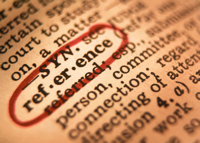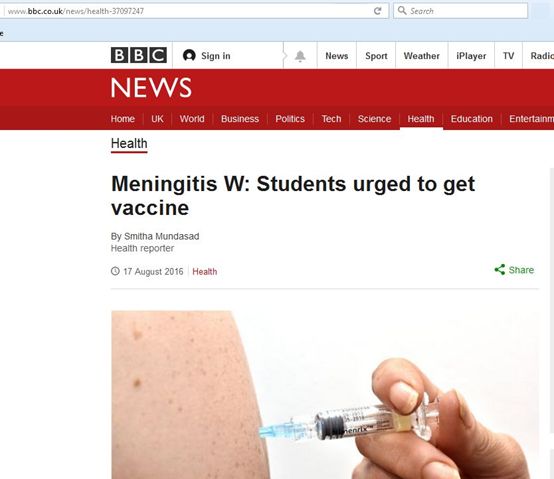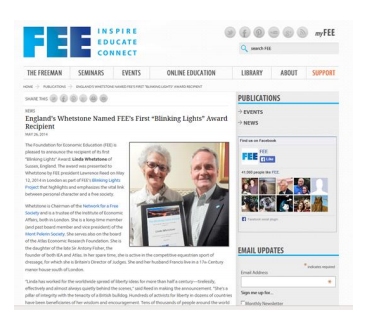
ARU Harvard
ARU students are now required to use the Cite Them Right style of Harvard referencing, see our Cite Them Right page.The full guide has two sections. In the first part we show you how to cite a reference in the text of your assignment, in the second part we have included instructions for each of the main source types such as books or web pages. Examples are given in red. Any similarities with published works are coincidental.
For more advice on academic writing, please visit the Study Skills Plus Canvas page.
MAIN GUIDE PART 1: IN-TEXT REFERENCING
Websites
To cite material found on a website, you need to identify who is responsible for producing it - the authorship.
This may be a named individual or a corporate author (an organisation, institution or company).
If you cannot see a named author, look for a corporate author. This could be in the website name, the About Us section or in the URL or web address.
The date for a website may not be obvious. Look around the page if it is not in the headline information - it might be at the bottom in the copyright statement.

In this example the authorship would be Mundasad and the date 2016.
An in-text reference for the above examples would read:
This may be a named individual or a corporate author (an organisation, institution or company).
If you cannot see a named author, look for a corporate author. This could be in the website name, the About Us section or in the URL or web address.
The date for a website may not be obvious. Look around the page if it is not in the headline information - it might be at the bottom in the copyright statement.

In this example the authorship would be Mundasad and the date 2016.
An in-text reference for the above examples would read:
Recent research on meningitis (Mundasad, 2016) has shown...
USING ELECTRONIC SOURCES
Websites
For websites found on the internet the required elements for a reference are:
Authorship or Source, Year. Title of web document or web page. [type of medium] (date of update if available) Available at: include web address/URL * [Accessed date].

*URL means Uniform Resource Locator - an address identifying the location of a file on the Internet
If a URL is exceedingly long, or the result of a personal search on a website, you can give the website's home page address with the routing or web path, showing your reader how to get from the home page to the specific page you have referenced.
It is good practice to keep in your files a copy of the first page of any web pages you use.
Authorship or Source, Year. Title of web document or web page. [type of medium] (date of update if available) Available at: include web address/URL * [Accessed date].
NHS Evidence, 2003. National Library of Guidelines. [online] Available at: <http://www.library.nhs.uk/guidelinesFinder> [Accessed 10 October 2009].

Foundation for Economic Education(FEE), 2014. England's Whetstone named FEE's first "Blinking Lights" award recipient.. [online] Available at: < http://www.fee.org/publications/detail/englands-whetstone-namedfees-first-blinking-lights-award-recipient> [Accessed 16 July 2014].
*URL means Uniform Resource Locator - an address identifying the location of a file on the Internet
If a URL is exceedingly long, or the result of a personal search on a website, you can give the website's home page address with the routing or web path, showing your reader how to get from the home page to the specific page you have referenced.
It is good practice to keep in your files a copy of the first page of any web pages you use.
IMAGES
Pictures, Images and Photographs
The suggested elements for a reference are:
Artist/Photographer's name (if known), Year of production. Title of image. [type of medium] Collection Details as available (Collection, Document number, Geographical Town/Place: Name of Library/Archive/Repository).
When using an image from a book or journal article, an in text reference should be included and a full reference included at the end of the piece of work. Look for the name of the image creator - either beneath the image, in the text, or in a list of figures, or copyright statement. If there is no author or artist given for the image, it is fair to assume the image was created by the author(s) of the book or journal article.
For an image with a creator who is not the author of your source.
In-text
The full reference
For an image created by the author(s) of the book or article.
In-text
Include the page number in your in-text citation. The full reference would be the reference to the book or journal article you found the image in.
Artist/Photographer's name (if known), Year of production. Title of image. [type of medium] Collection Details as available (Collection, Document number, Geographical Town/Place: Name of Library/Archive/Repository).
Beaton, C., 1956. Marilyn Monroe. [photograph] (Marilyn Monroe's own private collection).
Beaton, C., 1944. China 1944: A mother resting her head on her sick child's pillow in the Canadian Mission Hospital in Chengtu. [photograph] (London, Imperial War Museum Collection).
Beaton, C., 1944. China 1944: A mother resting her head on her sick child's pillow in the Canadian Mission Hospital in Chengtu. [photograph] (London, Imperial War Museum Collection).
When using an image from a book or journal article, an in text reference should be included and a full reference included at the end of the piece of work. Look for the name of the image creator - either beneath the image, in the text, or in a list of figures, or copyright statement. If there is no author or artist given for the image, it is fair to assume the image was created by the author(s) of the book or journal article.
For an image with a creator who is not the author of your source.
In-text
(Degas, 1883 reproduced in Terrasse, 1972, p.41)
The full reference
Terrasse,A., 1972. Degas. London: Thames and Hudson.
For an image created by the author(s) of the book or article.
In-text
(O'Malley, 2010, p.55)
Include the page number in your in-text citation. The full reference would be the reference to the book or journal article you found the image in.
O'Malley, M., 2010. The wisdom of bees. London: Portfolio.
Online images
For images found on the internet the required elements for a reference are:
Author, Year (image created). Title of work. [type of medium] Available at: include web site address/URL (Uniform Resource Locator) [Accessed date].
Where the author is not known, begin the reference with the title of the work.
Where none of the usual details are known, (such as author, date, or image title) try to find the filename of the image (for example by right clicking and looking at the properties of the file). If none of the above is available begin the reference with the subject and title of the work.
An in-text reference for the above examples would read:
Author, Year (image created). Title of work. [type of medium] Available at: include web site address/URL (Uniform Resource Locator) [Accessed date].
Where the author is not known, begin the reference with the title of the work.
Where none of the usual details are known, (such as author, date, or image title) try to find the filename of the image (for example by right clicking and looking at the properties of the file). If none of the above is available begin the reference with the subject and title of the work.
[Child placing gauze over knee wound] n.d. [image online] Available at: < http://www.dadpal.com/2009/12/wounds-care-help-and-wound-vac-therapy.html> [Accessed 01 June 2010].
[Nimbus 1 returned sharp cloud cover photos, plus night time infra red pictures] n.d. [image online] Available at: <http://rammb.cira.colostate.edu/dev/hillger/Nimbus-1_image.jpg> [Accessed 13 November 2008].
Pepsi, 2009. Pepsi can designs. [image online] Available at: <http://www.pepsi.co.uk/MaxYourPepsi.aspx> [Accessed 19 June 2009].
Van Vechten, C., 1934. Man Ray. [photograph] Available at: <http://en.wikipedia.org/wiki/File:Man_Ray_1934.jpg> [Accessed 04 October 2009].
[Nimbus 1 returned sharp cloud cover photos, plus night time infra red pictures] n.d. [image online] Available at: <http://rammb.cira.colostate.edu/dev/hillger/Nimbus-1_image.jpg> [Accessed 13 November 2008].
Pepsi, 2009. Pepsi can designs. [image online] Available at: <http://www.pepsi.co.uk/MaxYourPepsi.aspx> [Accessed 19 June 2009].
Van Vechten, C., 1934. Man Ray. [photograph] Available at: <http://en.wikipedia.org/wiki/File:Man_Ray_1934.jpg> [Accessed 04 October 2009].
An in-text reference for the above examples would read:
(Child placing gauze, n.d.)
(Nimbus 1, n.d.)
(Pepsi, 2009)
(Van Vechten, 1934)
(Nimbus 1, n.d.)
(Pepsi, 2009)
(Van Vechten, 1934)
